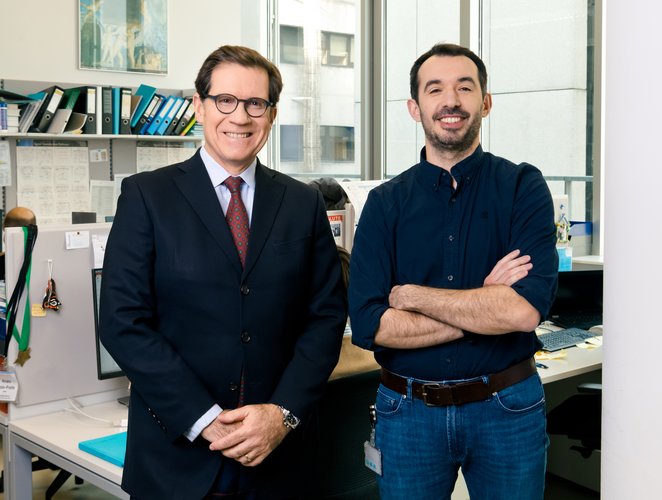
Uncovering novel relationships between solute carrier transporters and cytotoxic drugs in human cells
Researchers at the CeMM Research Center for Molecular Medicine of the Austrian Academy of Sciences have studied how Solute Carriers (SLCs), a large family of membrane transport proteins, influence the activity and potency of cytotoxic drugs, such as those used in the treatment of leukemia and other cancers. Their study, published in the journal Nature Chemical Biology, uncovers the dependency of most drugs studied on the function of at least one SLC. In some cases, the drug required the transporter to enter into the cell, in other cases, it provided small molecules (metabolites), which are crucial to the drug’s activity or the cell response…
Read more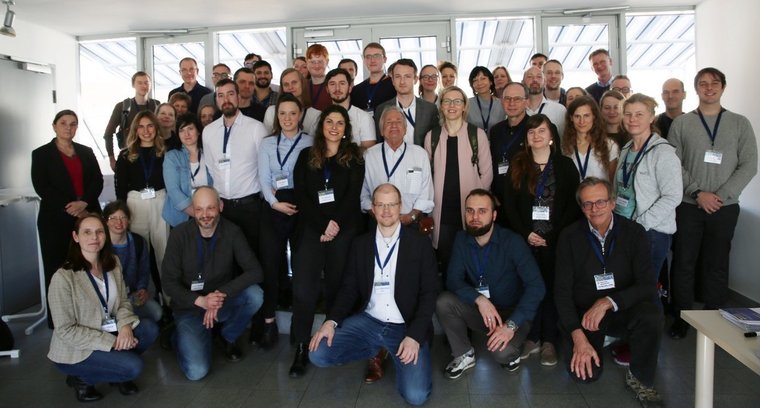
AustroVirology Symposium 2020
On 5 March 2020, the first AustroVirology Symposium took place at the St. Anna Kinderkrebsforschung (CCRI) in Vienna. The event, organized by CeMM PI Andreas Bergthaler and Karin Kosulin (CCRI), brought together 75 virologists from 12 institutions across Austria. The goal was to capture the rich diversity of academic, clinical and industrial virological research and to provide a platform to meet colleagues and forge new collaborations in the field.
The symposium kicked off by an inspiring keynote lecture about the co-evolution of phages and bacteria by Martin Polz, Professor at the Massachusetts Institute of Technology (MIT) and the…
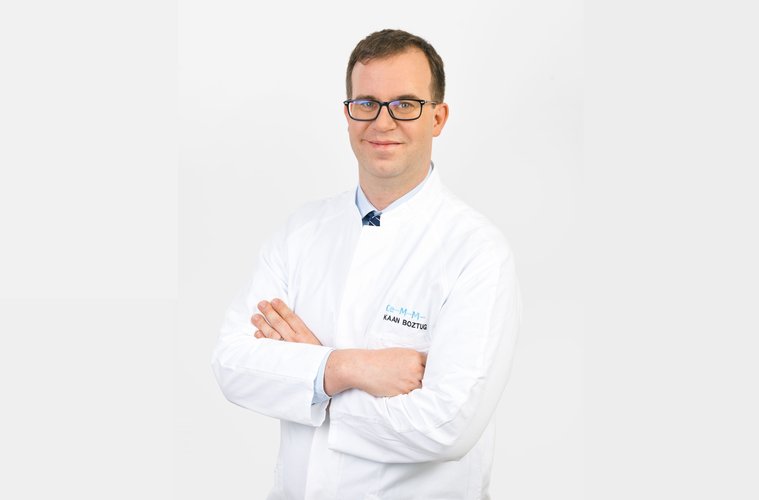
Rare Disease Day 2020
Today is Rare Diseases Day, which takes place every four years on 29 February. Currently 400 million people worldwide, of whom 30 million are in Europe[i] and 400,000 in Austria, are affected by a rare disease. There are between 5,000 and 8,000 different rare diseases[ii], and the vast majority are caused by a single genetic defect, which can already be detected in early childhood. They are not as uncommon as we may think but they are so little widespread that those who are affected by them are often not properly diagnosed or do not receive the most appropriate treatment for their condition.
Developing more effective and appropriate…

Single-cell sequencing of leukemia therapy: Shared genetic program, patient-specific execution
Researchers at the CeMM Research Center for Molecular Medicine of the Austrian Academy of Sciences, the Ludwig Boltzmann Institute for Rare and Undiagnosed Diseases in Vienna, the University Medical Center of Regensburg, and the National Institute of Hematology and Infectious Diseases and the Semmelweis University in Budapest have studied the response to targeted leukemia therapy in unprecedented detail, using single-cell sequencing and epigenetic analysis. The paper published in the journal Nature Communications uncovers a precise molecular program in patients with chronic lymphocytic leukemia (CLL) who start treatment with the targeted…
Read more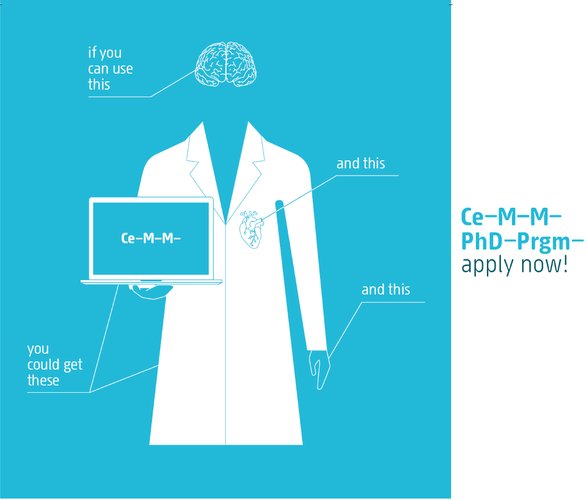
CeMM International PhD Program Call Open
The next PhD Program of CeMM, the Research Center for Molecular Medicine of the Austrian Academy of Sciences in Vienna will start in September 2020. We are offering 15 fully funded PhD positions at CeMM, the Research Center for Molecular Medicine of the Austrian Academy of Sciences, and LBI-RUD, the Ludwig Boltzmann Institute for Rare and Undiagnosed Diseases.
• Do you want to work in an environment that promotes free-minded scientific creativity, and translate your findings to impact medical practice and improve healthcare?
• Are you excited to gain a new understanding of the molecular physiology and pathology of humans?
• Do you…
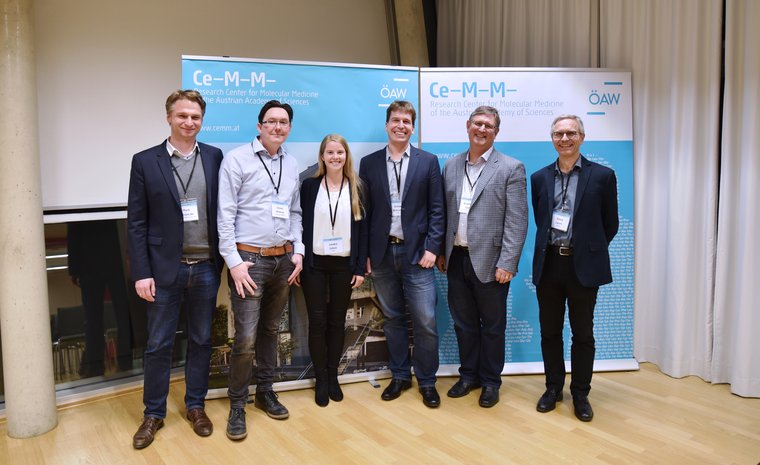
Christian Doppler Laboratory Closing Symposium
From 15 to 17 January 2020, the Christian Doppler Laboratory Closing Symposium “From Understanding Chromatin Dynamics to Therapeutics Targeting” will take place at the CeMM Research Center for Molecular Medicine of the Austrian Academy of Sciences in Vienna (Austria). The event is jointly organized by CeMM PI Stefan Kubicek, CeMM PostDoc Sandra Schick, and Senior Principle Scientist Simon Wöhrle (Boehringer Ingelheim). The highlight of the programme is the keynote lecture by Brian R. Cairns, Chair of the Oncological Sciences Department at the University of Utah School of Medicine, and an investigator with the Huntsman Cancer Institute (USA).…
Read more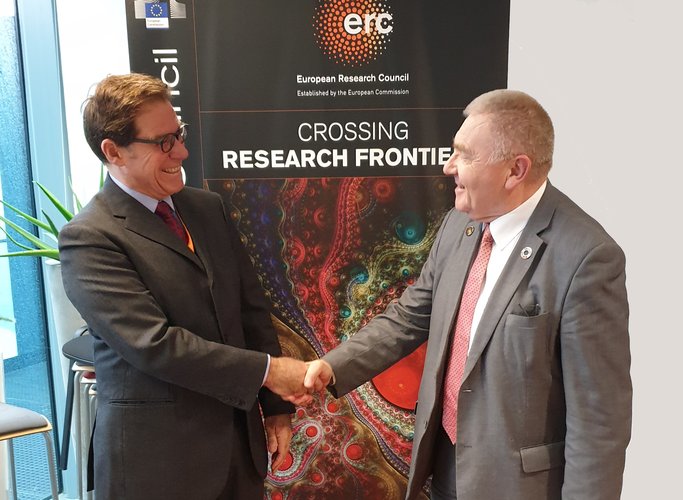
End of ERC Scientific Council Membership Giulio Superti-Furga
At the end of this year, Giulio Superti-Furga, Scientific Director of CeMM and Professor for Medical Systems Biology of the Medical University of Vienna, will terminate his appointment as Member of the Scientific Council of the European Research Council, which he started in January 2017. We thank Giulio for this important scientific community service during difficult political times, strongly advocating for the support of frontier research on new ideas, as the best means to reach innovation and economic welfare, and to sustain the ground for democracy. Having been awarded two ERC Advanced Investigator Grants in the past and two ERC…
Read more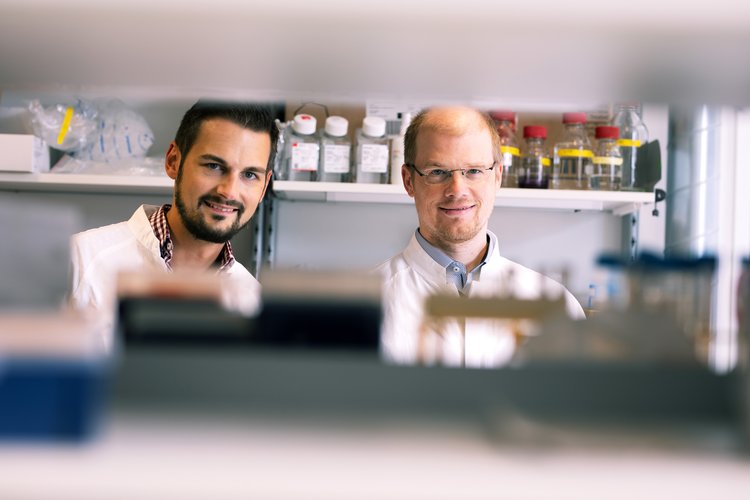
Master regulator of liver metabolism identified during infection
Researchers at the CeMM Research Center for Molecular Medicine of the Austrian Academy of Sciences identified a key mechanism for how antiviral immune responses reprogram liver metabolism. Their recent study, which was published in the renowned scientific journal Immunity, investigated the communication between inflammation and liver metabolism during chronic viral infection. Surprisingly, the antiviral cytokine type I interferon (IFN-I) was found to be a master regulator of metabolic pathways in liver cells. The researchers focused on the urea cycle, a central metabolic node, and found that it is disrupted by IFN-I during viral infection.…
Read more
CeMM enters into research collaboration on targeted protein degradation with Pfizer Inc.
CeMM, the Research Center for Molecular Medicine of the Austrian Academy of Sciences, announces the start of a three-year research collaboration with Pfizer Inc. to explore a combination of technologies aimed at expanding the druggable proteome. CeMM Principal Investigators Georg Winter (project coordinator), Giulio Superti-Furga and Stefan Kubicek, in collaboration with researchers from Pfizer’s Medicine Design organization based in Cambridge, USA, will aim to explore a discovery strategy that combines parallel, efficient ligand identification with focused degradation of individual targets.
Chemical proteomics approaches have traditionally…
Read more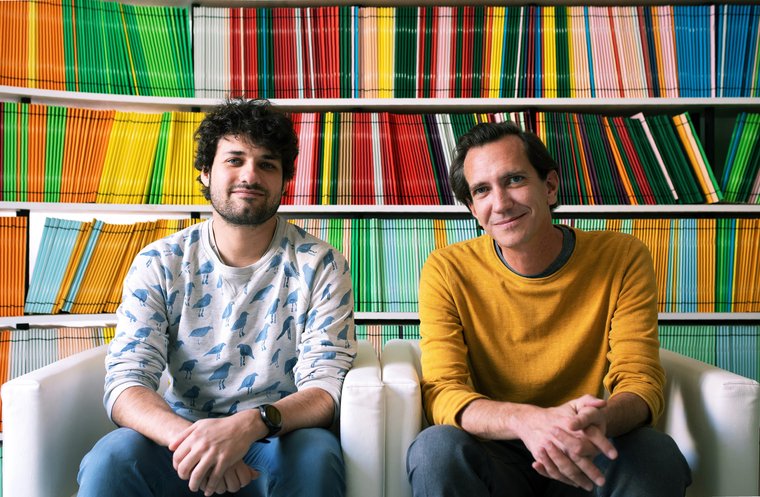
Novel mathematical framework provides a deeper understanding of how drugs interact
Researchers at the CeMM Research Center for Molecular Medicine of the Austrian Academy of Sciences have developed a new methodology characterizing more precisely how drugs influence each other when combined during treatment. Their analysis of over 30k drug pairs applied to cell lines identified 1,832 interactions between 242 different drugs and sheds new light on how drugs perturb the underlying molecular networks. The findings have now been published in the scientific journal Nature Communications.
Combining two or more drugs can be an effective treatment of diverse diseases, such as cancer. Yet, at the same time, the wrong drug combination…
